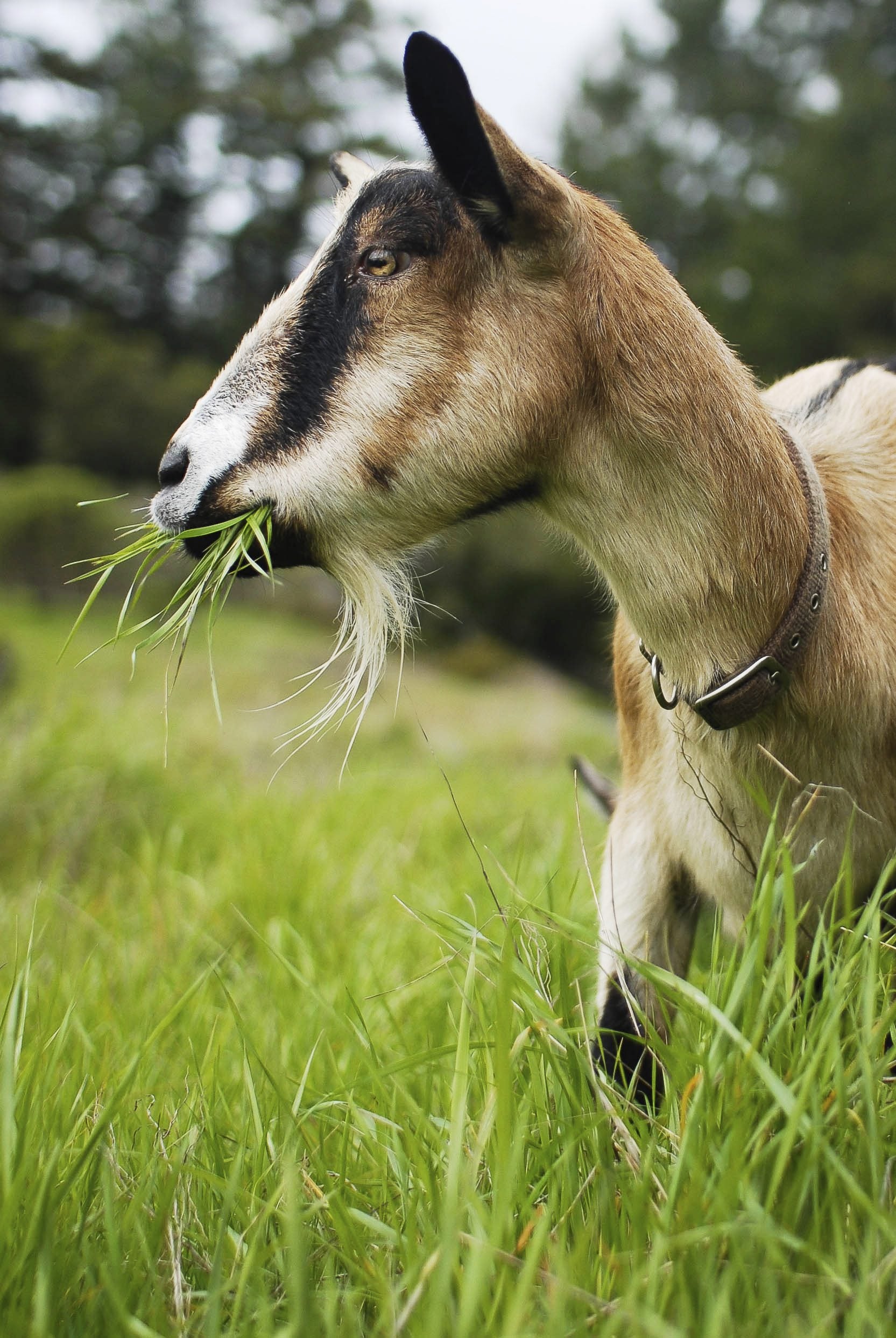Goats In The Garden – Learn About Using Goats For Weed Control


Sign up for the Gardening Know How newsletter today and receive a free copy of our e-book "How to Grow Delicious Tomatoes".
You are now subscribed
Your newsletter sign-up was successful
Concerns over emissions, pesticides, herbicides, and other chemical effects on our planet have led many of us to contemplate earth-friendlier options when grooming our landscapes. A cute and safe alternative to many of our fueled and chemical treatments is using goats for weed control. Not only are goats good for controlling weeds, but they also work to keep the lawn trimmed. Raising goats for weed management might just be the solution you’re looking for and the results may be more than just safe yard maintenance. You may find you and your family have new friends.
Are Goats Good for Controlling Weeds?
Goats have been used for centuries in different cultures as meat, for their milk, and as four-legged brush clearing machines. Goats will eat almost any vegetation and have a capacity to digest even plants with stickers and thorns. Goats will even eat poison ivy and many other pest plants. Goats in the garden are a win-win solution as long as you don’t have prize roses or other vegetation nearby that these animals might find tasty. There are a few things you need to know about raising goats for weed management such as housing, supplemental feeding, and the number you will need for the best outcome. Just like humans, goats require variety in their diet. This would be all vegetative, as the animals are herbivores and do not consume meat. Are goats good for controlling weeds? Provided you have an area contained with just plants that you don’t mind consumed, these animals are champions for eating brambles, weeds, and other unwanted plants. In fact, many municipalities rent goats to clear brush along roadsides, vacant lots, and even open playfields and parks. Goats will even eat invasive and damaging plant pests such as:
They have no problem nibbling on stinging nettle and other plants that would put off a lesser animal. One plant to watch out for, however, is yew. This is toxic even to goats and should not be in the grazing area.
Using Goats for Weed Control
The number of goats you will need for your landscape control will vary by property size, but one thing to note is that goats are social creatures. That means you should not have just one goat, as he or she will get lonely. A herd of 30 goats can clear half an acre of brush and weeds in three or four days, but in the home situation, you need significantly less. This is because they have a diverse diet and will consistently and daily nibble away at the problem plants. Over time, you may find the area so well managed that you will have to give more supplemental food to the animals. This is recommended anyway, as goats will require alfalfa hay or other high nutrient foods to supplement their forage. Goats will consume grass but prefer other plant species, so they are not the most reliable lawn mowers, but they will nibble at it for a change of pace. You still might like to keep your lawn mower, but the number of times you use it can be reduced with goats in the landscape.
Tips for Goats in the Garden
The animals will need to be fenced in carefully. These grazers are adept at leaping, jumping, and climbing. A stout, tall fence is necessary to keep the animals contained and prevent predators, like coyotes, from snatching them away. Goats also require a well-ventilated shelter to protect them from wind, rain, and extreme cold. Goats will need supplemental grain as well as a salt block with trace minerals. The animals will also need a good source of clean drinking water. Goats make excellent pets and are a fun addition to the family. These animals have diverse personalities and are enjoyable to watch. Other benefits of using goats to clear brush include their light, agile movements, which damage land less than heavy equipment, and their fertilizing attributes. What comes in must come out and goat manure is an excellent amendment to soil with its rich nitrogen components. As with any pet, weigh your options and ability to house and care for your goats. This may be the answer to your brush and weed problem, but for meticulously landscaped yards, these voracious eaters could also be more damaging than helpful.
Sign up for the Gardening Know How newsletter today and receive a free copy of our e-book "How to Grow Delicious Tomatoes".

Bonnie Grant is a professional landscaper with a Certification in Urban Gardening. She has been gardening and writing for 15 years. A former professional chef, she has a passion for edible landscaping.